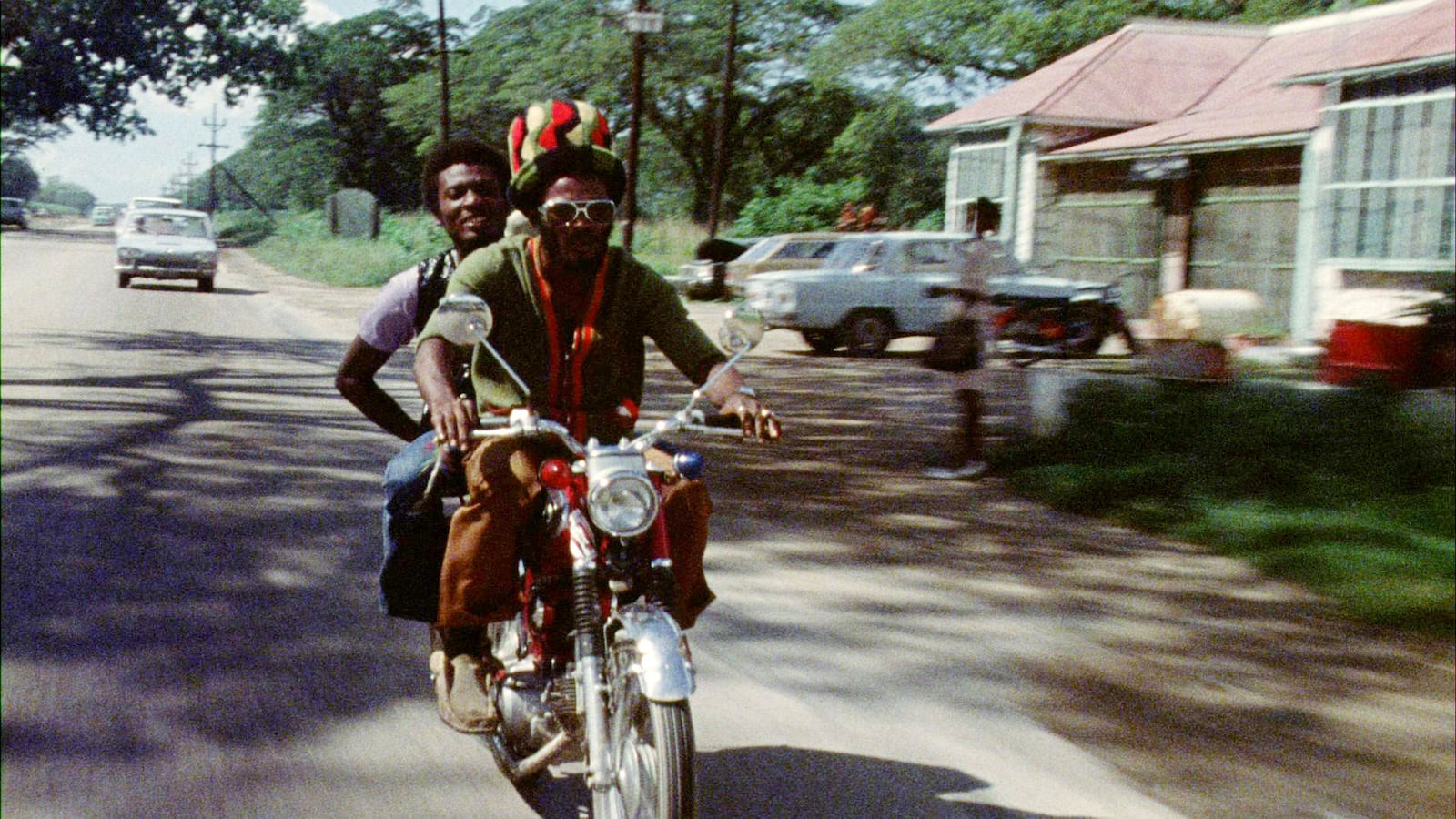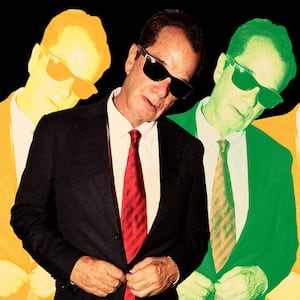How do you take a seminal movie that just celebrated its 50th anniversary and create a contemporary musical with reggae, a genre of music rarely seen on stage? That was the challenge facing Tony Taccone (director) and Sergio Trujillo (co-director) of The Harder They Come which began previews earlier this month at New York City’s Public Theater with performances running through March 26.
“The film is celebrated all over the world for its contribution to creating an authentic Jamaican culture. A whole strata of Jamaicans had never seen themselves on screen like that,” Taccone said of the 1972 cult classic which follows the journey of Ivan, a singer who hopes to become a star and soon finds himself on the run from police.
In Pulitzer Prize-winning playwright and The Public’s Writer-in-Residence, Suzan-Lori Parks, the directors found a collaborator who brought a “cinematic” and “seamless” experience to the scene writing, Trujillo said.

Natey Jones in rehearsal for the world premiere musical The Harder They Come at the Public Theater.
Joan Marcus“We aren’t doing an orthodox interpretation of the movie,” Taccone said. “We are taking Perry Henzell’s story and adapting it to our situation in America 2023 [where] a guy stands up to injustice after he repeatedly gets dealt a bad hand.”
Below, Taccone and Trujillo discuss bringing Ivan’s story to the present day, the love story at the center of the musical and more.
The following interview has been condensed, edited for clarity and includes spoilers.
The Daily Beast: In the film Ivan is portrayed as an anti-hero. How do you think he will be received by audiences in this adaptation?
Taccone: Our Ivan (Natey Jones) is an emerging hero. The only person he shoots at in the whole play is the checkpoint cop who shoots at him first. There’s a different emphasis on both the violence and Ivan’s journey in our version. In the pandemic, post-George Floyd era there’s a heightened awareness about the level of injustice that is being perpetrated in America. We have to tell the story in a way that assures that the empathy we’re going to get for Ivan is earned and honest.
Trujillo: Lockdown forced us to redirect the course we were on. The world has changed and so have we as creatives. It would be irresponsible of us to not really take notice and be incredibly socially politically responsible.
TDB: The tension of how to handle injustice causes friction between Ivan and Elsa (Meecah) and mirrors where we are as a society. Over the last few years, you often see people within families and/or relationships who have very different ideological stances on the most pressing issues facing our country and it provides an interesting conundrum.

Tony Taccone, Dudney Joseph Jr, and Dominique Johnson in rehearsal for the world premiere musical The Harder They Come, with book by Suzan-Lori Parks, songs by Jimmy Cliff, co-direction by Sergio Trujillo, and direction by Tony Taccone.
Joan MarcusTaccone: This is a love story at its core. Elsa has been raised in the church and her faith is one of the things that keeps her grounded psychologically and morally. She’s attracted to somebody who doesn’t share her faith, but who she believes in as a person. I think our interpretation of Ivan allows her to do that. He’s done something wrong and she regards it as an act of self defense and wants him to turn himself in. He says “I can’t do that, they won’t give me a fair shake.” She says, “Try it.”
She still believes in the system. This is a three-dimensional relationship that makes things between them somewhat complicated, it adds a layer of truth and depth to the story. Elsa and Daisy [Ivan’s mom, played by Jeannette Bayardelle] believe in the good book and Ivan believes in his song book.
TDB: The music from the film holds a lot of resonance for the impact it had in catapulting reggae more broadly beyond Jamaica and the region.
Trujillo: We’re highlighting this incredible catalog by an incredible artist and the contributions Suzan-Lori Parks has made to the piece. She’s a talented musician and composer who has been able to bring her own songs while making it fit the world of Jimmy Cliff.
Taccone: The music is relentlessly good, and we have the rights to the entirety of the Jimmy Cliff song book. There’s eight songs that were not in the movie. I think the public is in desperate need of some sense of joy, some sense of a future— a release. I think the music does that in our show. There’s an overriding sense of release and joy by the end because the music is transcendent. Ivan does live on and we’re doing that on stage. We’re bringing him back and saying “Let’s go into the future with each other.”






